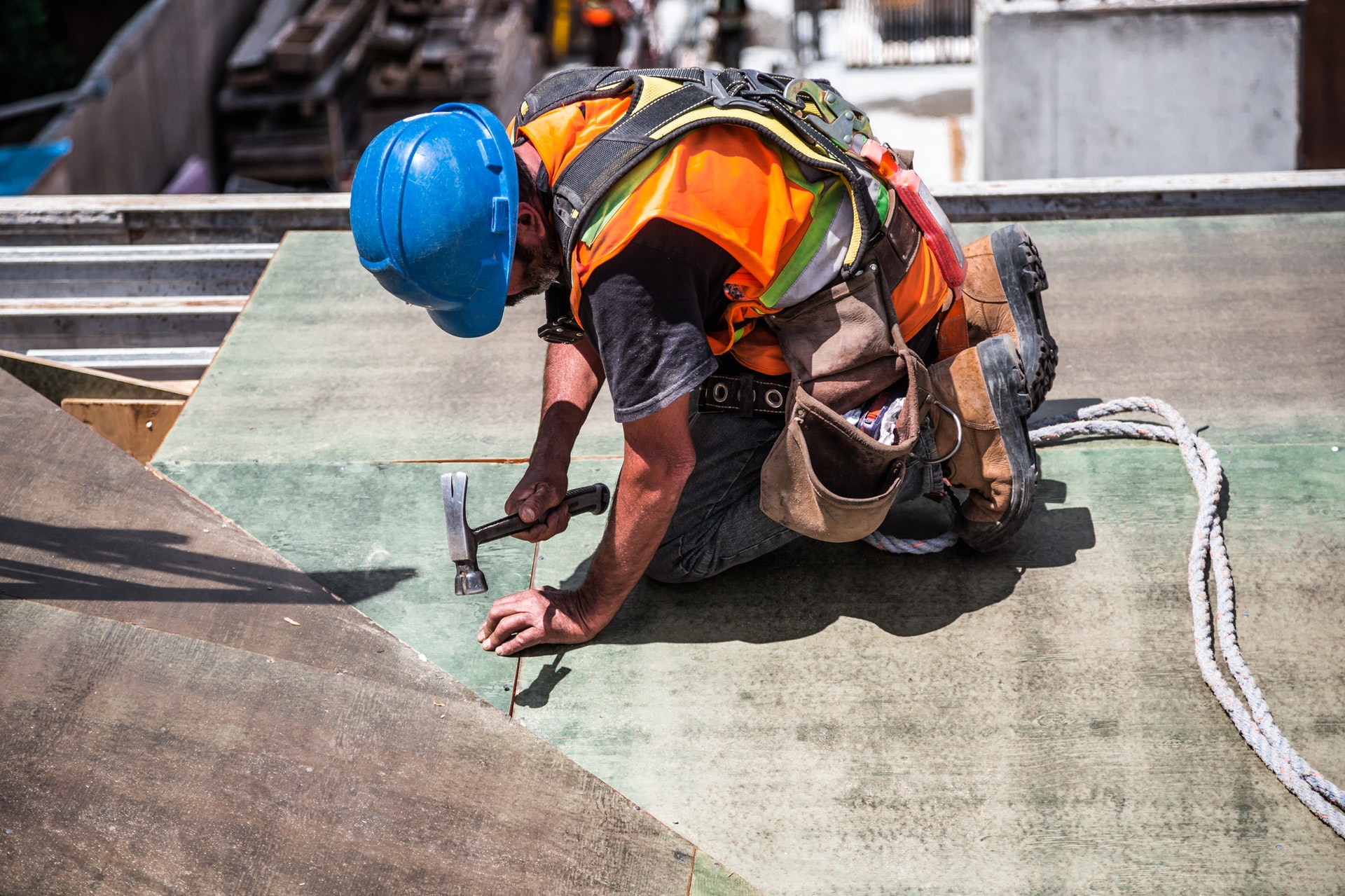
Builders have a range of different rights and obligations when working on any project in the UK, as do all professionals and legal bodies involved in the process. The rights and obligations of the builder in particular however are slightly different. There are both contractual rights and obligations that are dependent on the work agreed upon, but there are legal and statutory rights and obligations too. All of these need to be considered individually and collectively in order to get the most comprehensive explanation.
The Contract of Work
The first area to look in relation to most issues that occur during a building project can be found in the contract that is used to negotiate and uphold it. It is always advised to get a written contract of work for builders and clients; however, verbal contracts are also in place for the work to begin too which can be upheld in court, although written contracts with clear written details always make things much safer.
Contracts help to determine a whole host of rights, obligations, responsibilities and agreements in a project for both builder and client, including:
- Waste & Tidying
- Facility Usage (& Toilets)
- Working Hours
- Material Sourcing
- Payment Details
- Schedules & Timings
- Site Access
- Additional Work
There is also a great deal more than this that can be covered in a contract, but these are just some of the key areas that are often covered and disputed should anything actually occur throughout a build.

Builder Rights & Obligations within Civil Law
In addition to contractual rights and obligations, builders and workers are also subject to civil law which is both applicable and highly relevant information to have.
Quality of Work
The quality of work that takes place is always expected to be of a satisfactory standard, and that goes for both the workmanship and the materials, methodologies, technologies and principles used throughout the build.
This is typically shown in two key pieces of legislation:
The Supply of Goods and Services Act 1982 (as amended)
This first piece of legislation essentially explains the level of quality that is expected of any professional or contractor undertaking work. The client/customer has the legal right to expect you to:
- carry out work using reasonable skill and care
- do the work at a reasonable price, unless a specific price is agreed
- complete the work within a reasonable time, unless a specific time-scale is agreed
- provide parts, materials and goods that are of satisfactory quality, fit for their purpose, and correctly described.
The Sale and Supply of Goods to Consumers Regulations 2002
As well as the previous, The Sale and Supply of Goods to Consumers Regulations 2002 outlines the actions, reparations or replacements that can be expected if any work carried out is not satisfactory for a range of different reasons.
Consumers can expect you to:
- repair or replace any faulty goods, material or components used as part of a service that you have supplied
- you must provide this remedy without ‘significantly inconveniencing’ the consumer, i.e. taking too long to carry out the repair or to provide a replacement
- if a repair or replacement is impossible, unreasonable, or ‘disproportionate’ to the nature of the complaint, then the consumer may be able to claim a partial or full refund, again depending on the circumstances.
Guaranteeing Work
Similar to the information seen in the Sale and Supply of Goods to Consumers Regulations 2022, it’s also commonly seen in a standard builder contract that should anything be wrong with the work, there is a guarantee in place for it to be fixed.
While this is normally a guarantee for 12-24 months, it can span years longer in some cases. It all completely depends on what you need guaranteed, who did the work, and the agreements that you had in place at the time.
You can find more information on builder guarantees here.
Quotes Vs Estimates
In addition to the legislation used above, it’s also important to refer to other legalities involved in the rights and obligations of a builder. One crucial aspect of this for example is the use of terminology regarding a quote, a price and an estimate.
An estimate in the eye of civil law is not binding. It is an estimate based on the information that was to hand at the time and does not have to be entirely accurate or upheld.
A quote, or sometimes a price (this is less clear), is however a fixed price that should be upheld. The customer should not be expected to pay any more than this for the work within the quote. Anything additional or not included may or may not however be charged additionally. This should be made clearer still and legally binding in the contract of work.
Cancellations
For any contract for work that will be undertaken in someone’s home or workplace, the consumer must legally be given the right to cancel the contract within at least seven days of making the contract. This should be in writing and given to the customer or client. If you arranged the services online or over the phone (distance selling), then this may be 14 days.
Sub Contractors
Another of the rights and obligations of a builder is that any subcontractors are usually under the builder’s responsibility and not the customer’s. That means anything that they do is subject to all of the above points, and the builder is the one responsible for this. Should anything be wrong, it is on the builder and not the customer to remedy it.

Builder Rights & Obligations within Criminal Law
Enforced by Trading Standards, Excise and Customers, Health and Safety Executive, Building Control, Police, a host of builder rights and obligations are listed in criminal law in addition to those in civil law.
Conduct & Communication
One of the main areas of builder rights and obligations is in the conduct and communication of the builder or business supplying the builder. The most specific is this comes from is:
The Consumer Protection from Unfair Trading Regulations 2008
Under The Consumer Protection from Unfair Trading Regulations 2008, it is essential that you are open and honest when communicating with a client or customer, including before, during and after the service you provide is carried out. That includes:
- Materials, where they are sourced, how much of them is used and how
- The characteristics of work or materials and the benefits of disadvantages that come with them
- The requirement for the service
- The affiliations, memberships, partnerships or certifications of the builder or business
- The nature, attributes and rights of the trader i.e. any qualifications that you have or any connections to other companies.
Any failure to adhere to this can lead to fines of £5,000 for each offence, as well as the potential for unlimited fines and even prison time for serious offences. It’s very serious legislation and is set out to ensure nothing short of truth for consumers.
Companies Act
The companies act regarding the rights and obligations of a builder means that builders that are trading under a name that isn’t their own name, the owners of the business and the address where the business can be served documents should appear on all business-related documents.
Call-out charges
Builders like most tradesmen have the right to charge for callouts, but they also have the obligation to make this clear to the customer before they agree to carry out any work. They should carefully explain how this charge is created (i.e. time and what constitutes being charged for a full hours pay).

CDM 2015 Responsibilities
For projects with more than one contractor, the Construction (Design & Management) Regulations (2015) are applicable. This determines that projects must have a principal designer and a principal contractor. With these roles, the Principal Designer and the Principal Contractor, as well as the client, all have specific roles and responsibilities in the project.
Principal Designer
The principal designer is responsible for the pre-construction phase of work. That often means an architect or designer, or the builder themselves if they are the one planning or designing the project. They need to:
- Help set up the project and provide the client with the info that they need to create the project brief, and ensure the client knows their responsibilities
- Advice about time and resources needed for the project as best as possible
- Coordinate pre-construction information (although they are not responsible for obtaining it, they are for informing the client of what they need and if anything is missing).
- Eliminate Foreseeable Risks and identify health and safety problems to be acted upon however necessary, as well as maintain the health and safety file
- Liaise with the Principal Contractor and communicate the project to them clearly throughout the build
Principal Contactor
The Principal Contractor takes charge of the construction phase of the project and manages the build itself. They have to:
- Consider all health and safety risks and make sure that the site is safe, secure and that the workers and public are protected from harm throughout the project.
- Liaise with the client and the Principal Designer to review pre-construction information (approvals, designs etc.), make sure the designs will achieve the desired results and confirm health and safety factors too.
- Prepare a Construction Phase Plan and maintain it accordingly as legally required.
- Provide Welfare Facilities and make sure that facilities like toilets, drinking water and rest stations are accessible on-site before work starts.
- Manage Contractors and Workers and ensure that workers are adequate, work is scheduled, provide necessary information and health and safety resources, and supervise the entire project.
Conclusion
Overall, a builder is subjected to a host of rights, obligations, legislation and codes of conduct and standards. Typically, all of these things all point in the same direction, and that is to ensure that clients are informed, treated fairly, and any work carried out is of reasonably high quality without any surprises.
There are multiple services available to both clients and builders in any project to help protect them from this, including project management services like our own that are designed to manage a build from a 3rd party perspective, keeping everything above board and reducing stress, conflicts or issues as much as possible throughout the process.
All of the information found here is from official online sources and is not legal advice or the opinions of CK Architectural. Always seek official legal advice before taking action of any kind and follow official guidance.





